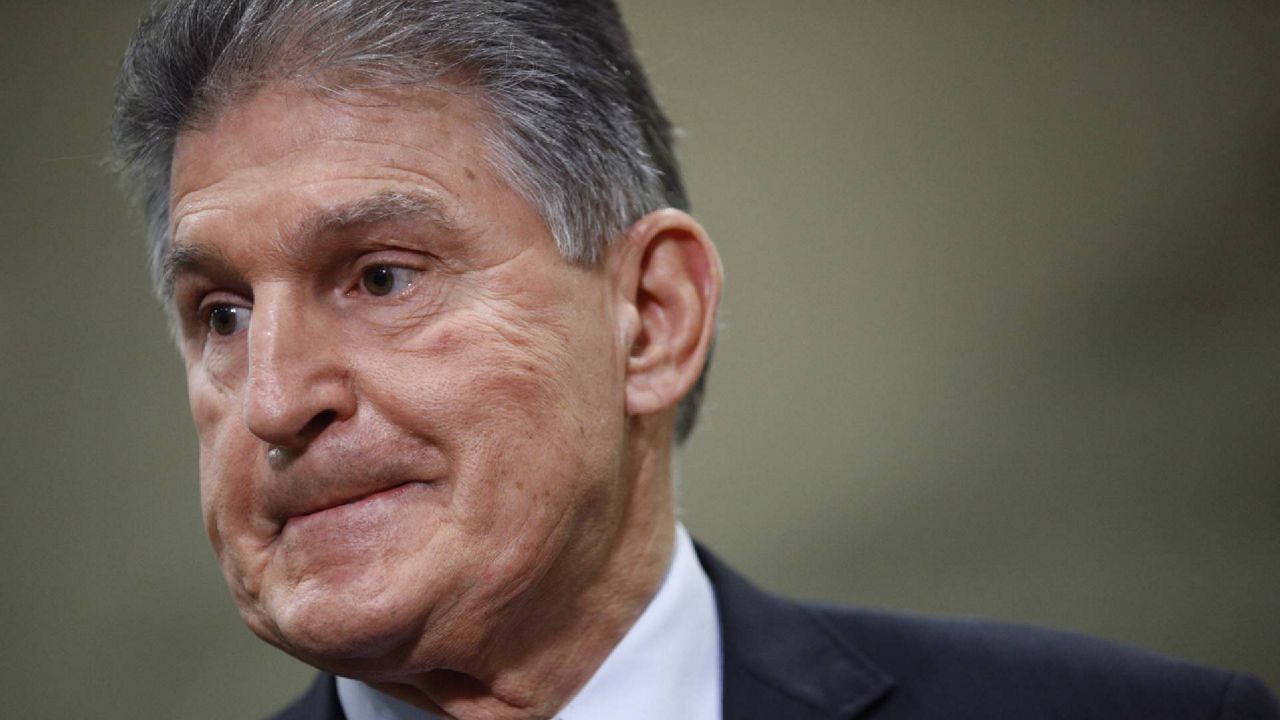A group of Democratic and Republican senators unveiled a new version of their $908 billion coronavirus relief legislation Monday, now split into two bills in an effort to pass the most urgent measures before lawmakers leave for the holidays.
The bulk of the proposal, a $748 billion measure, focuses on emergency measures set to expire by the end of 2020, such as supplemental unemployment programs, small business aid and a federal moratorium on evictions. It also includes things like money for vaccine distribution, the transportation industry and education.
The second part is a $160 billion package with two more controversial measures: aid for state and local governments — a priority for Democrats — and liability protections for businesses, a red line for Majority Leader Mitch McConnell.
The group of senators presented the two bills on Monday with paper copies on the podium, the stack outlining the $748 billion measure far taller than the other. Many expressed optimism about their agreement and urged their colleagues to support it.
“Bipartisanship and compromise is alive and well in Washington,” said Sen. Joe Manchin (D-WV) who has helped shepard the talks.
The bipartisan bills are also bicameral, since they’ve included discussions with the House Problem Solvers Caucus, which has been negotiating its own proposal since November.
Most of the provisions in the new, two-part relief proposal go through the end of April, but senators acknowledged it may be just the first step.
“Depending on the course of this pandemic, we may have to do more,” said Republican Senator Susan Collins of Maine.
Still, it’s unclear whether the proposal would get enough support from congressional leaders to stay on the table.
Democratic leaders have praised the bipartisan talks, including House Speaker Nancy Pelosi and Minority Leader Chuck Schumer. But Majority Leader McConnell hasn’t signaled explicit support, though he called it movement “in the right direction.”
House Speaker Pelosi spoke with Treasury Secretary Steven Mnuchin both Sunday and Monday, but Pelosi and McConnell hadn’t announced any new talks as of Monday evening.
The new two-part agreement still doesn’t include a stimulus check for Americans, which Republican Senator Josh Hawley (MO) and Senator Bernie Sanders (I-VT) continue to call for, threatening to hold up the vote.
But the bill would be a major boost to jobless Americans. It includes a $300 weekly unemployment subsidy, and it would also extend two supplemental unemployment programs set to run out in the days after Christmas.
“It would be Scrooge-like if we went away and left folks — the day after Christmas — to lose their unemployment,” said Sen. Mark Warner (D-VA).
The group also unveiled more details about the proposed aid for state and local governments, which Democrats say is crucial but Republicans have painted as a bailout for poorly-managed states.
Each state would be entitled to at least $500 million in funding, and the rest would be determined first by revenue loss and then by population. With $8 billion set aside for tribal nations, $91.2 billion would go to states and $60.8 to individual counties and local governments.
On Monday, senators said they hoped both bills would pass, but because the larger bill reflects the areas of bipartisan agreement, it’s more likely to move ahead, especially with an approaching deadline for Congress to fund the government and with lawmakers set to leave Washington for the holidays on Friday.
Any COVID relief legislation could be attached to the larger government spending bill, which must be passed by Dec. 18 to avoid a shutdown.
“We will not go home for Christmas until we pass legislation that gives relief to the American people,” said Sen. Manchin Monday. “Help is on the way.”



